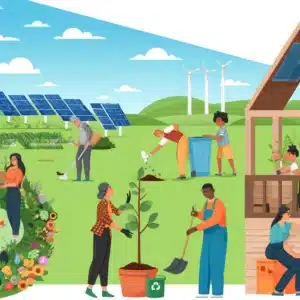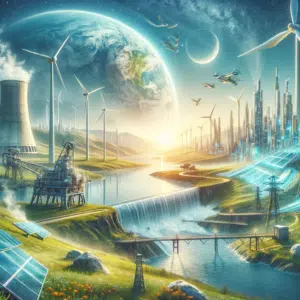Our world is under strain; understanding your ecological footprint has never been more critical. We all share responsibility for reducing this footprint, which demands immediate attention and action.
Understanding the Concept:
An ecological footprint is a measure of human demand for nature. It calculates our consumption and waste, providing a tangible way to understand how our actions affect the environment. As we grow conscious of our impact, we’re better equipped to reduce our footprint, bolstering the planet’s health.
The Ecological Footprint Calculation:
Quantifying an ecological footprint isn’t just about carbon emissions. It considers land and water use, waste production, and resource consumption. This holistic perspective allows for a more accurate understanding of our environmental impact.
Differentiating Ecological and Carbon Footprints:
While ecological and carbon footprints are environmental metrics, they have different focuses. The ecological footprint is broader, accounting for all human activities and their impact on nature – from land use and water consumption to waste generation. Conversely, the carbon footprint zeroes in on greenhouse gas emissions, particularly carbon dioxide, linked to our actions. It’s a subset of the ecological footprint, illustrating our role in climate change. Thus, a comprehensive sustainability strategy should address both footprints.
Why It Matters:
The ecological footprint concept alerts us to an alarming reality: we’re currently using resources faster than our planet can replenish them. A reduced environmental footprint helps nature recover and ensures resources for future generations.
The Overshoot Day:
One way we mark our ecological footprint is by observing Earth Overshoot Day. This is when humanity has used more from nature than the planet can renew for a year. It’s a stark reminder of the need to decrease our footprint.
Reducing Your Ecological Footprint:
There are many ways to reduce your ecological footprint. These include reducing water usage, decreasing waste production, and opting for renewable energy. Small changes, when made collectively, can drastically reduce our footprint.
Ways to Reduce Waste:
Reducing your waste is an effective strategy. You could start by avoiding single-use items, composting organic waste, and choosing products with less packaging. These steps can significantly decrease your ecological footprint.
The Role of Renewable Energy:
Switching to renewable energy sources like wind or solar can also reduce your ecological footprint. Renewable energies produce fewer emissions and are sustainable, offering a clean alternative to fossil fuels.
The Impact of Diet on Ecological Footprint:
What we eat also influences our ecological footprint. A plant-based diet typically has a smaller footprint than a diet high in meat and dairy. By making mindful food choices, we can lessen our environmental impact.

Influence of Transportation:
Transportation is another crucial factor. Public transit, carpooling, or cycling can significantly reduce your ecological footprint. These methods lessen emissions compared to driving alone.
Conclusion:
Understanding and reducing your ecological footprint is essential for a sustainable future. Every action counts, and collectively, we can make a difference. By making conscious choices about consumption, waste, energy, diet, and transportation, we can help ensure our planet’s well-being.
Remember, our ecological footprint is more than just a concept. It’s a call to action. Let’s tread lightly on the planet for us and future generations.











